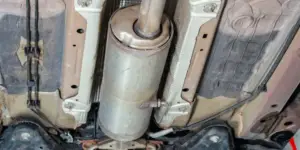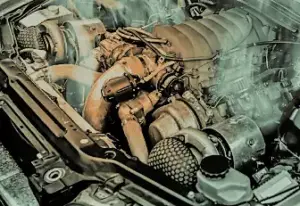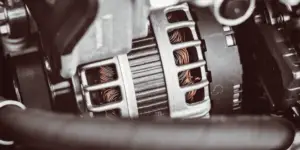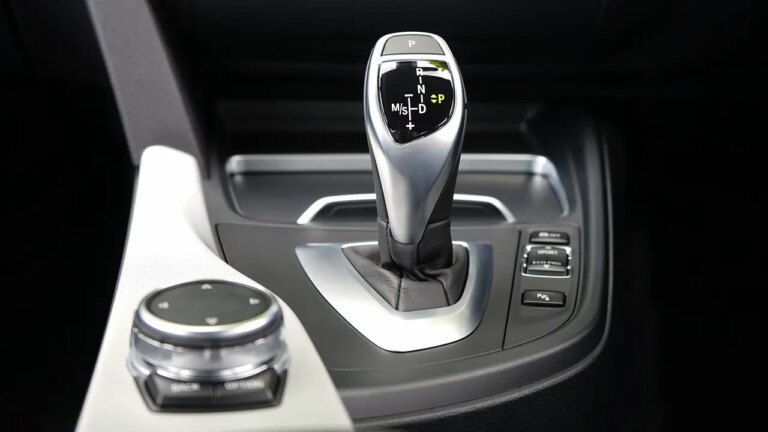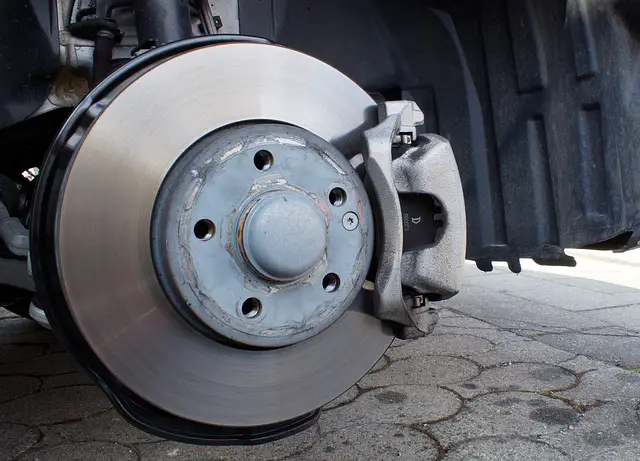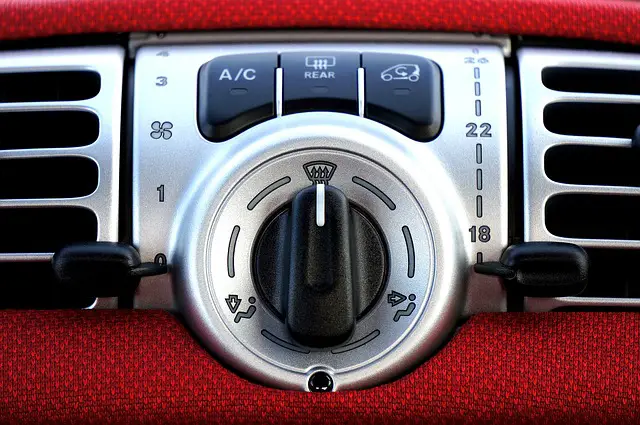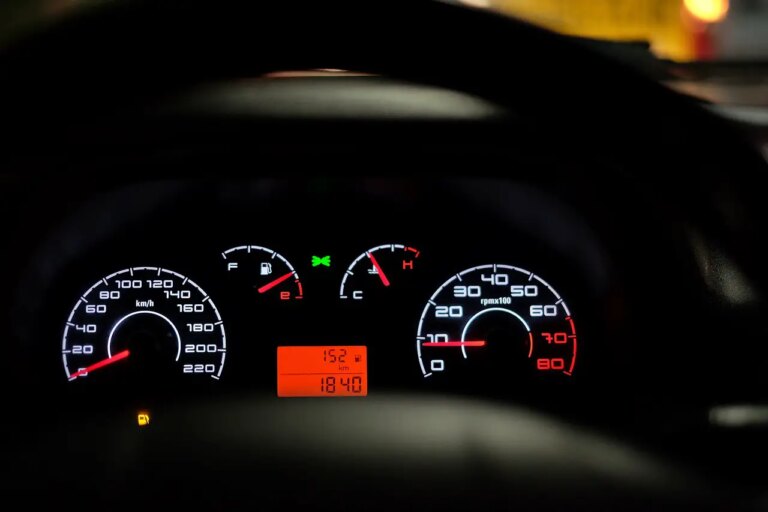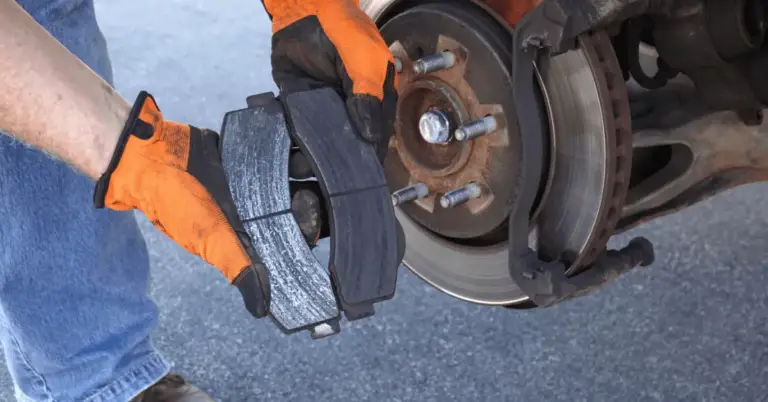How hot is your alternator?
I ask this because they can be hot. They’re producing many volts of power, after all.
Are you asking because you know how hot your alternator is to the touch, and it’s gotten a lot hotter than usual? If so we’ll cover the causes, fixes and costs below.
These are the causes why your cars alternator is getting hot and overheating:
- Alternator and battery connections need cleaning
- Diodes stopped working on one side
- Bad grounding
- Casing vents are blocked
- Bad alternator bearings
- Faulty voltage regulator
- Alternator cooling fan not working
Let’s explore these causes in more detail:
1. Clean and Check Alternator and Battery Connections
Okay, the first thing is to check all the connections. Are the battery connectors corroded? If you’ve just bought it, has the previous owner smothered the connectors in dielectric grease, for example. It happens. If so, you need to get that stuff off!
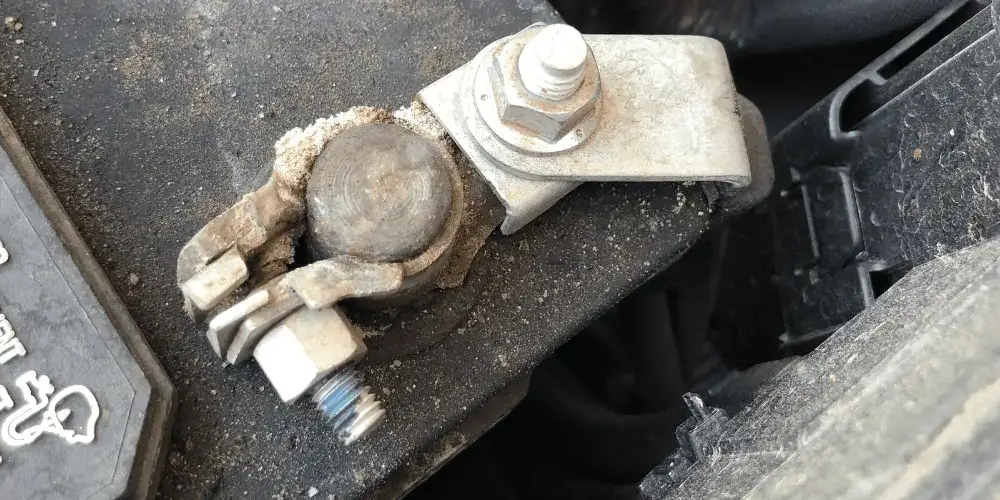
Check for any kinks, poorly fitted cables, loose connections. This is generally the cause – or at least stands a good chance of being the cause. If in doubt, replace them with new cables.
They’re dirt cheap compared to having to replace batteries and alternators.
2. The Diodes On One Side Aren’t Working
Are you noticing that one side of the alternator is getting hotter than the other? It may be only a slight temperature change, but if you do see it, it could be that one bank of your diodes has died.
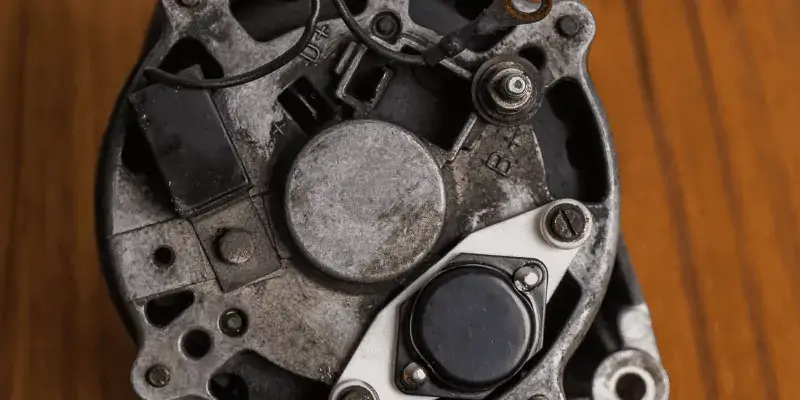
It’s storing heat up as it can’t convert the charge into direct current – which is what the car’s electrical system and battery need to operate.
3. Alternator Not Grounded
It would be best if you made sure that the ground cable is fitted well and not frayed. It actually looks more like a strap than a cable, so it’s a bit confusing.
If your alternator has a clean bolt to the chassis, this should be enough to make a good ground connection.
4. Alternator Vents Blocked
Most alternators are air-cooled. The heat given off to generate the power needed to run a car is substantial, and it needs to go somewhere.
Usually, the alternator fan would draw air in and remove the heat. If your slots are clogged with debris- this can be because of it being the result of debris left behind in a flood – but more often the build-up over the years instead your alternator will retain the heat and sometimes smoke. Clean out the slots, and all should be okay. A cheap fix.
5. Bad Alternator Bearings
When the alternator bearings start to fail, they often lose the grease within the seal. Without the lube, the bearings will start rubbing on the metal cover. The friction can cause a lot of heat to be generated and the alternator to overheat.
You’ll typically hear a grinding noise too.
6. Alternator Voltage Regulator
Your alternator can produce more voltage than is needed. This sensor restricts it. They do occasionally go wrong, though. When they do, they can allow the alternator to produce up to 240v, which the alternator isn’t built to do.
Furthermore, none of your car’s electrical systems can tolerate that amount of voltage either.
This can overcharge a battery, which means a replacement, and cause your other electrical systems to burn out. The voltage regulator sits at the back of the alternator and is easy to replace. It clips in. Some though, are located within the alternator itself and will need the alternator to be removed to complete the repair or replacement.
Many people have replaced a few batteries before realizing the regulator is causing the issue.
7. Alternator Cooling Fan
As discussed, most cars have air-cooled alternators. BMW and a few others have changed over to liquid-cooled systems.
When cooling fans fail, the alternator has a hard time getting rid of the heat inside it. It does the same job as your radiator fan. Lack of cooling will cause the alternator to overheat.
When you are stationary, and no air can rush past your radiator, the fan turns on to do the job.
Should An Alternator Be Hot To The Touch?
Alternators get hot but should never be too hot that you can’t touch them. Having to take your hand off because they become too hot indicates an alternator grounding problem. Have you got a good ground path back to the battery? Grounding is the first place to look.
If that is all good then things become a bit more involved. It could be in no particular order, bad diodes, voltage regulator, or alternator fan. You are best taking it off and getting it tested.
Often read next by other visitors: Alternator Smoking Dangers [TROUBLESHOOTER GUIDE]
In conclusion
Most of the time, the issue is either the alternator isn’t grounded correctly or you have a bad connection to the battery.
Check the air vents next as that is a nice easy visual check.
The other reasons mentioned are less likely, but I’d always check the voltage regulator before getting into the alternator itself.
You may be interested to know if you can actually run your car without an alternator. Find out here


